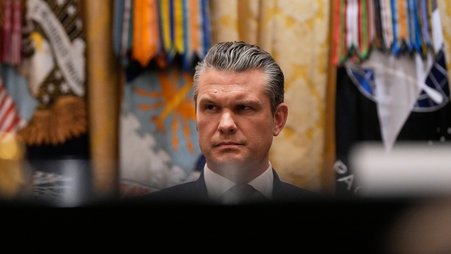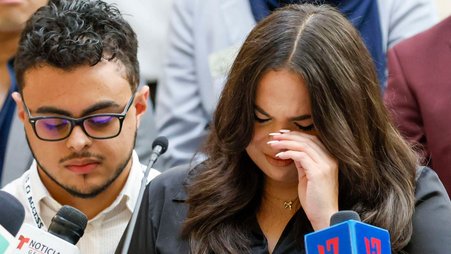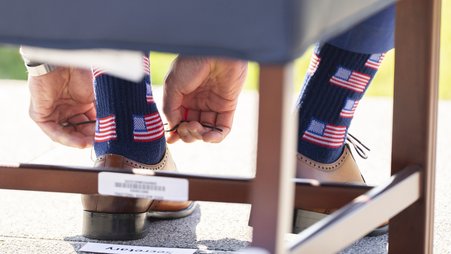A recent federal court decision upholding the constitutionality of “Daniel’s Law” in New Jersey could embolden governments to restrict free speech by using privacy laws.
Daniel’s Law prohibits anyone from disclosing or publishing the home addresses and unlisted telephone numbers of government officials like judges, prosecutors, and police officers once the official sends a request asking for the information to be removed. After law enforcement and correction officers sued direct mail companies, data brokers, and similar entities under the law, the federal court rejected the defendants’ argument that it violates the First Amendment.
Daniel’s Law may sound like a reasonable way to protect government employees’ privacy. The law was enacted following a tragic attack at the home of a federal judge, in which her son was killed and her husband severely wounded. Public officials who face threats should receive enhanced security and protection, and those who threaten them should be punished.
We’re also certainly not here to defend data brokers, whose unregulated collection and sale of people’s data puts many people — including journalists — at significant risk. There’s no doubt that properly crafted privacy laws can be compatible with the First Amendment.
But we should be wary of laws that prohibit people from publishing or obtaining truthful information about government officials, even in the name of protecting privacy. For example, Daniel’s Law makes it far more difficult for journalists to investigate issues related to officials’ residency — such as whether they’re registered to vote where they live or have close family members living in a house owned by a billionaire — by allowing them to scrub their home addresses from most public records.
Courts must require the government to meet the highest constitutional burden to justify laws that protect the privacy of some of the most powerful government actors when those laws impact truthful speech. If not, we risk giving the government the power to limit or censor speech that’s embarrassing or sheds light on official wrongdoing.
Government shouldn’t get to decide what journalists can and can’t print
Data brokers aren’t the only ones affected by Daniel’s Law. Journalists are too. One New Jersey journalist, Charlie Kratovil, challenged Daniel’s Law on First Amendment grounds after a law enforcement official, Anthony Caputo, sent him a cease and desist letter for raising questions about Caputo’s place of residence. Kratovil, whose reporting revealed that Caputo lived more than two hours away from the community he served, had stated the name of the street (but not the specific address) listed on Caputo’s voter profile during a city council meeting.
So far, New Jersey courts have decided that Daniel’s Law can forbid publishing officials’ exact addresses, after Caputo and the state begrudgingly conceded that Kratovil could publish the name of the town he lived in. But Caputo first invoked Daniel’s Law after Kratovil mentioned just his street name, and other journalists will surely wonder how “exact” is too exact when it comes to discussing officials’ place of residence.
Kratovil has appealed to the New Jersey Supreme Court, arguing that the law violates the First Amendment by giving the government the power to say what the press can and can’t print.
Privacy laws must meet highest standards when government restricts speech
Daniel’s Law restricts speech based on its content (because it regulates disclosure of specific information about government employees). It also gives the government the power to prohibit the publication of true information. It should therefore be subject to the highest level of First Amendment scrutiny.
If we’re going to allow the government to infringe on free speech, it must have an extremely good reason and be required to write a law that affects the least amount of speech necessary to obtain its goals. That’s not just our opinion, it’s long been the Supreme Court’s standard.
But in its recent decision, the federal court held that Daniel’s Law isn’t required to satisfy this extremely high bar, simply because it’s a privacy law. Instead, the court applied a less strict balancing test that it said comes from past Supreme Court decisions involving a conflict between privacy and free speech.
That’s dangerous. Lowering the bar for privacy laws gives the government a freer hand to regulate speech as long as it says it’s doing it to protect privacy. Government officials and other public figures will inevitably abuse that power to stifle speech they dislike.
There’s no shortage of public figures and officials claiming that reporting on their illegal, hypocritical, or unsavory behavior violates their privacy. Some have even tried to use privacy as a justification for suing reporters. For instance, when Louisiana Gov. Jeff Landry was attorney general, he sued a reporter for requesting public records about sexual harassment allegations against one of his top deputies, arguing that their release would violate the deputy’s privacy. And just last year, an Arizona state senator claimed a journalist invaded her privacy by knocking on her door to see if she lived in the district she represented, and temporarily obtained a restraining order against the journalist.
The court’s decision is also wrong as a legal matter. The Supreme Court has repeatedly refused to allow litigants to characterize legal claims as about something other than speech — whether it’s emotional distress or even privacy — as workarounds to punish speech. The Supreme Court has also warned against expanding exceptions to the First Amendment and called ad hoc balancing tests weighing First Amendment rights against other competing interests “startling and dangerous.” The First Amendment already strikes the balance in favor of free speech.
The public’s interest in where officials live
Both of the courts that heard Kratovil’s challenge to Daniel’s Law concluded that the exact address and phone numbers of public officials aren’t matters of public concern or significance. That takes too narrow a view of the public interest. Sometimes journalists need to bring the receipts, and publishing details can be the most powerful way to demonstrate a news report is true.
For instance, when CNN exposed North Carolina gubernatorial candidate Mark Robinson’s offensive posts on online sex forums, it published his date of birth — information considered “private” under at least one law similar to Daniel’s Law — to prove the link between Robinson and the online accounts. It also published his unique online user name, information that some future privacy law could designate as private, as some have with email addresses.
That’s not to say that journalists should publish officials’ personal information without careful consideration and without good reason. But the First Amendment generally places the responsibility for making that decision in the hands of journalists, not judges, who may wrongly give greater weight to powerful people’s wish for secrecy than the value of public disclosure. We shouldn’t bend the rules to make it easier for the government to censor the press in the name of privacy.





